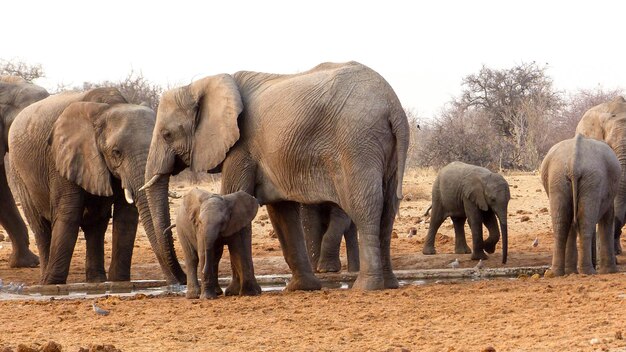Elephant Cull in Zimbabwe and Namibia Poses Risk to US$433 Million Tourism Industry

Zimbabwe’s recent decision to cull 200 elephants, alongside Namibia’s plan to kill 1,002 wild animals—including 100 elephants—has sparked widespread international condemnation. Conservation organizations and wildlife experts have voiced concerns that these actions threaten Zimbabwe’s tourism sector, which is valued at an estimated US$433 million, making it the country’s third-largest economic sector.
Impact on Tourism and Wildlife
The implications of the elephant culling extend beyond the immediate loss of wildlife. The tourism industry heavily relies on healthy populations of wildlife and intact natural habitats. Elephants, in particular, are a major attraction for tourists visiting Zimbabwe, especially in iconic locations like Hwange National Park. Killing these animals jeopardizes not only the future of wildlife tourism but also the livelihoods of those who depend on this industry.
Experts warn that the culling may lead to increased pressure to undermine international bans on ivory trade, as the resulting stockpiling of elephant tusks could provoke demands for legalized ivory markets. This situation could exacerbate poaching and further endanger remaining elephant populations, which have already declined by 60% across Africa over the past five decades.
Justifications and Alternatives
The governments of Zimbabwe and Namibia have justified the culling plans by citing drought relief, human-wildlife conflict mitigation, and population control. However, many conservationists argue that such measures are neither sustainable nor effective. Instead of resorting to lethal interventions, they advocate for the implementation of non-lethal strategies that promote coexistence between humans and wildlife.
A coalition of 57 organizations, including Action for Elephants and the Born Free Foundation, has urged both countries to abandon their culling plans. They emphasize that there are proven alternatives to address the challenges posed by drought and human-wildlife conflict. These include providing staple food to affected communities, enhancing land governance, and promoting sustainable agricultural practices.
Call for Sustainable Solutions
The coalition stresses the importance of prioritizing humane solutions that ensure food security and protect wildlife. They argue that the current drought affecting southern Africa, while devastating, presents an opportunity for governments to implement stronger land management practices and support rural communities in adopting sustainable livelihoods.
Experts have identified various strategies that can effectively address the impacts of drought and human-wildlife interactions without resorting to killing wild animals. These include community education, investment in wildlife corridors, and the establishment of compensation schemes for farmers affected by wildlife.
The proposed culling of elephants in Zimbabwe and Namibia not only threatens the wellbeing of these iconic animals but also poses a significant risk to the tourism industry, which plays a crucial role in the economies of both nations. By prioritizing humane and sustainable solutions, these countries can address the challenges of wildlife management while ensuring the preservation of their rich natural heritage and the livelihoods of their people. The global community must continue to advocate for the protection of elephants and the promotion of ethical wildlife tourism, which benefits both local communities and the environment.




